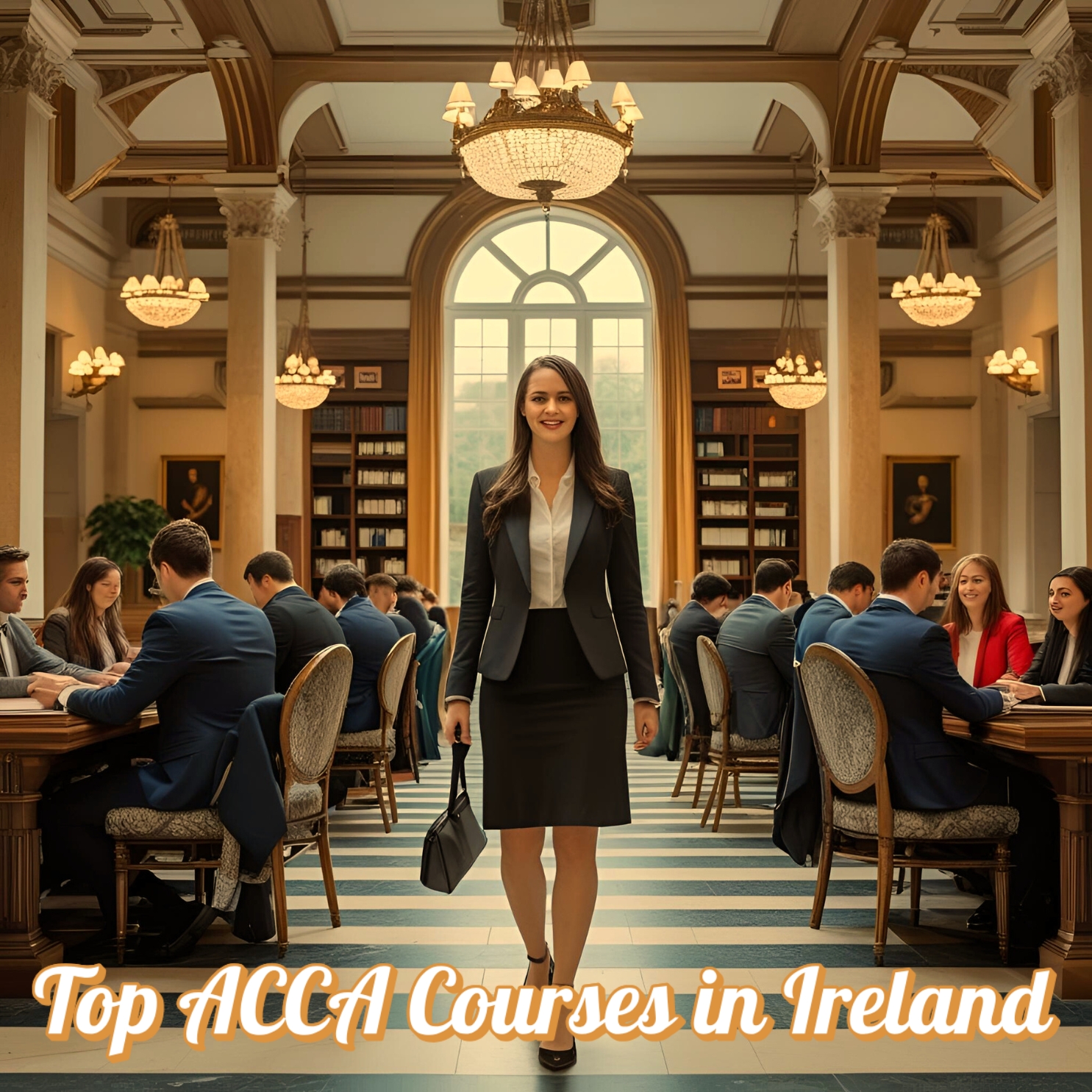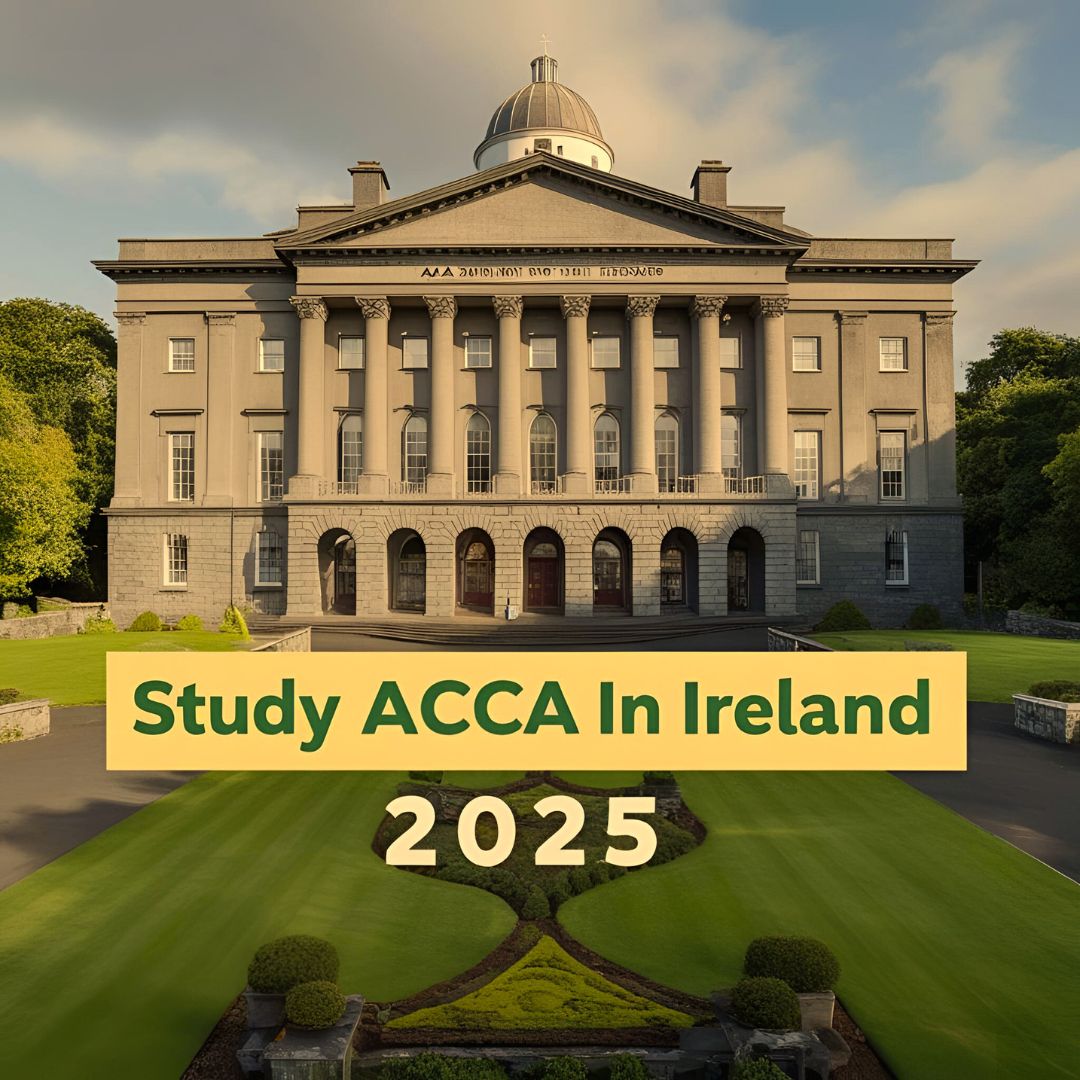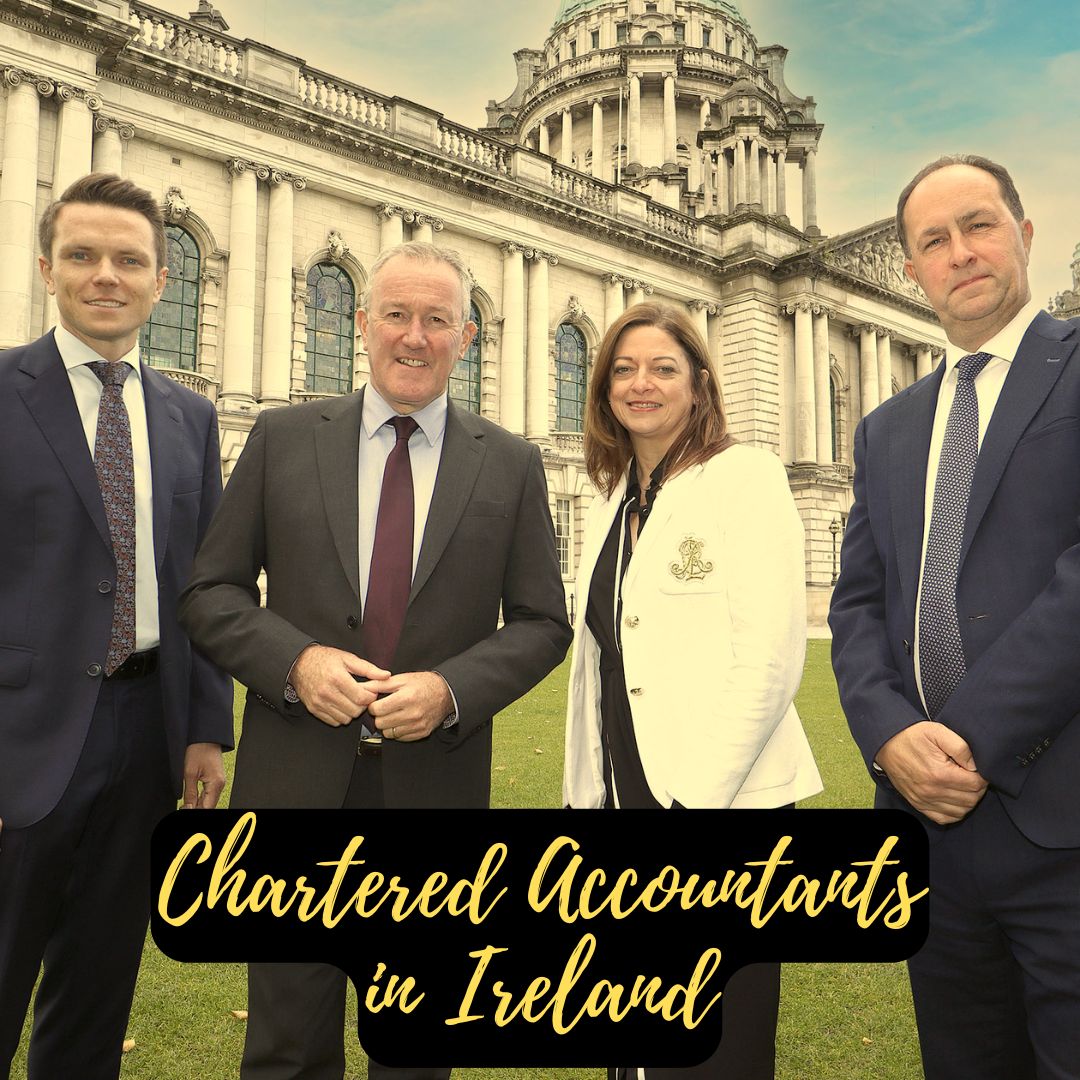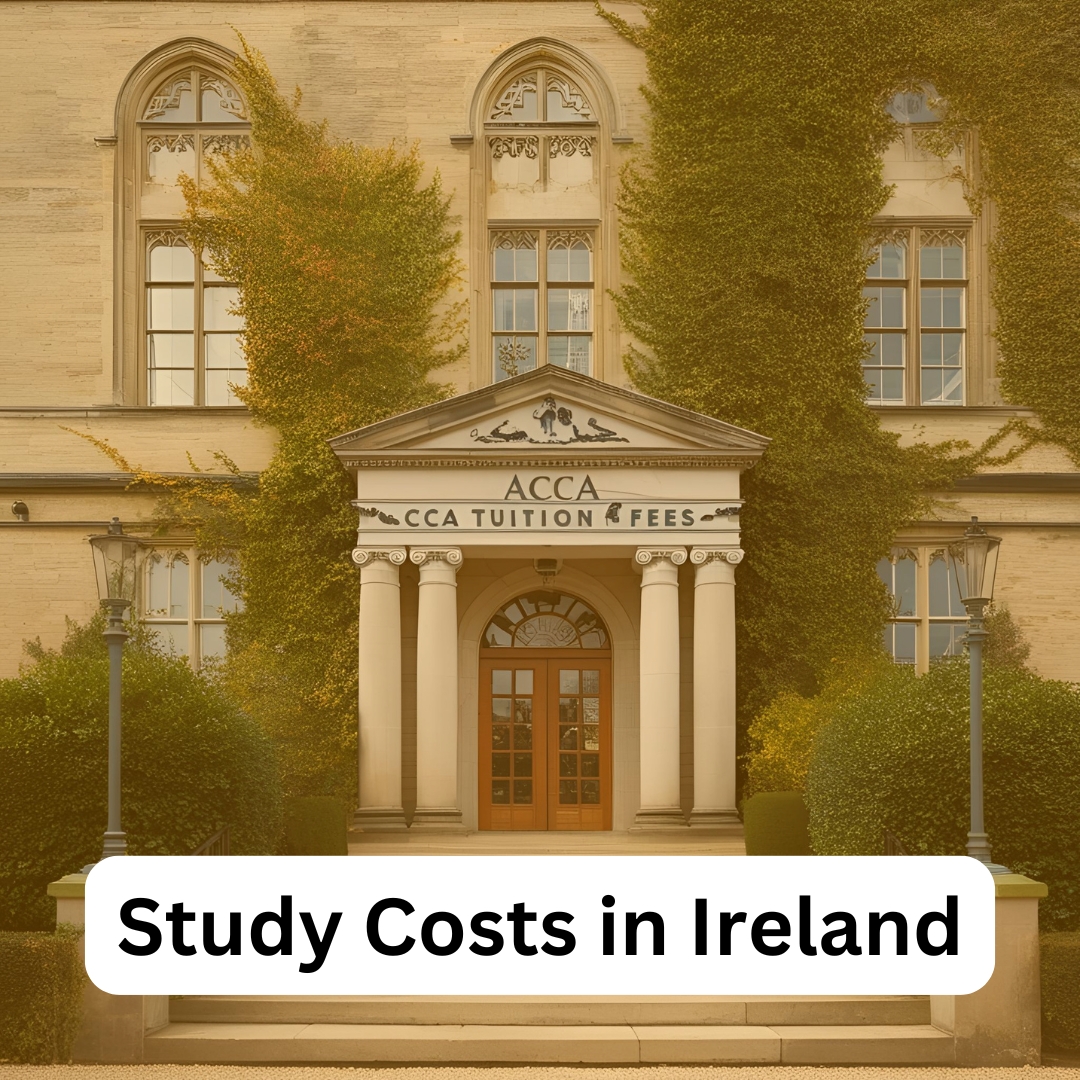AN OVERVIEW:
ACCA (Association of Chartered Certified Accountants) is a prestigious qualification with a unique, comprehensive, and diverse curriculum. The qualification is quite structured and follows modern learning techniques; therefore, it focuses on incorporating academic knowledge in real-world scenarios. ACCA in Ireland consists of 13 modules, each module/course covers a different area of accounting or finance, providing in-depth knowledge and skills to survive in the complex finance world. ACCA courses in Ireland are highly valued as they provide detailed and upgraded information on the modern financial sector rather than relying on traditional accounting methods only.
Each course is important and opens a door to a different career prospect. The importance of an ACCA course is also influenced by an individual’s personal interests and career goals. But today, in this blog, we are going to discuss a generic stance about the top ACCA courses in Ireland.
Read More Study ACCA in Ireland in 2025
KNOW ABOUT THE ACCA COURSES IN IRELAND:
There is a series of 13 ACCA courses in Ireland that aspirants need to clear to complete the academic requirements of the ACCA qualification. The curriculum of these courses is structured uniquely, focusing on aspects other than theoretical knowledge, such as equipping aspirants with technical, analytical, ethical, and professional skills. Each course of ACCA in Ireland covers a different area of accounting, which is essential in the financial world. These courses are divided into three academic levels (Applied knowledge, Applied skills, and the Strategic Professional), with each level, the complexity and depth of the course increase. ACCA courses in Ireland include Business and Technology, Management Accounting, Financial Accounting, Audit and Assurance, Taxation, Corporate and Business Law, Financial Reporting, Performance Management, Strategic Business Leadership, Strategic Business Reporting, Financial Management, etc.
IN-DEMAND ACCA COURSES IN IRELAND:
Each ACCA course covers an essential area of accounting and finance; therefore, the importance of every course remains the same. But some ACCA courses are more valued and are in demand in certain job markets. So today we are going to discuss the top ACCA courses in Ireland:
Read More Career Prospects with ACCA in Ireland
STRATEGIC BUSINESS LEADERSHIP:
Strategic Business Leadership is an advanced course of ACCA at the strategic professional level. This course is highly valued because of the emphasis it puts on equipping aspirants with analytical skills, such as leadership skills, strategy building, risk management, and ethical skills. The main focus of this course is to let aspirants apply their theoretical knowledge to real-world financial issues to generate effective solutions. This course equips you with leadership and analytical skills essential for senior roles in the financial sector, allowing you to take over managerial-level roles like CFO, business consultants, and financial managers etc.

today!
STRATEGIC BUSINESS REPORTING:
Strategic business reporting (SBR) is also a course from the Strategic Professional level; a complex course that prepares you with not only the knowledge but skills to achieve ultimate success in the financial world. This course adds value to your academic and professional profile by providing a good understanding of IFRS (International Financial Reporting Standards) and enhancing your ability to interpret and apply them. Helps you take over roles that involve financial statements’ analysis, reporting, and compliance, etc. There is a significant demand for professionals with expertise in strategic business reporting, especially in roles like Financial accountants, auditors, and controllers; many large corporations and Multinational organizations seek such skilled professionals.
Read More ACCA Online Tuition Providers in Ireland
ADVANCED FINANCIAL MANAGEMENT:
Advanced Financial Management is one of the most in-demand ACCA courses in Ireland; it is an optional module at the Strategic Professional level. It focuses on essential skills like risk management, treasury, business valuation, and investment appraisals. These qualities are highly appreciated in professionals who want to expand their careers in financial advisory, investment banking, or corporate finance. The unique curriculum and in-depth knowledge provided in this course train aspirants to have good leadership skills and strategic decision-making. With efficiency in all the skills, knowledge, and expertise that this course offers, aspirants can take over roles like financial analyst, M&A professional, and corporate finance.
ADVANCED AUDIT AND ASSURANCE:
Advanced audit and assurance is also a course of ACCA in Ireland, which is an optional course at the strategic professional level. The course and the skills it provides are highly valued and rewarded in the auditing sector. This course adds so much academic value to your professional profile that it attracts big employers like Big Four accounting firms. It is ideal for professionals who want to expand their careers in roles like compliance officers, auditors, risk consultants, etc. The key skills and qualities offered by this course are that it trains aspirants to be efficient in regulatory compliance, audit planning, and risk assessments.
Read More ACCA Online Courses
FINANCIAL REPORTING:
Financial reporting is an essential course of ACCA in Ireland, which is at the Applied Skills level of the qualification. This course opens the door to professional opportunities for roles like general accountants, entry-level finance professionals, etc. This course provides you with the understanding and skills to prepare, interpret, and maintain financial statements according to IFRS. Employers seek such professionals who are efficient in producing accurate financial statements using International Financial Reporting Standards.
CONCLUSION:
Aspirants of ACCA in Ireland are advised to stay focused on all the ACCA courses, as each course covers a different area of finance that holds a unique value in the professional world. However, you can choose the area you want to build your career in, but do not overlook other courses. The modules from the strategic professional level are considered to be essential, as these courses indicate the specialization of your qualification, and your career choices might rely on them.
FREQUENTLY ASKED QUESTIONS:
Q1: How many courses are in the Strategic Professional level?
Answer: The strategic Professional level consists of four ACCA modules; two of them are essentials, while the other two are selectives/optionals. The essential courses are strategic business leadership and strategic business reporting.
Q2: How many ACCA exams can I take in one sitting?
Answer: You can take a minimum of one and maximum four ACCA exams in a single exam sitting; know that there are four ACCA exam sittings in a year.











